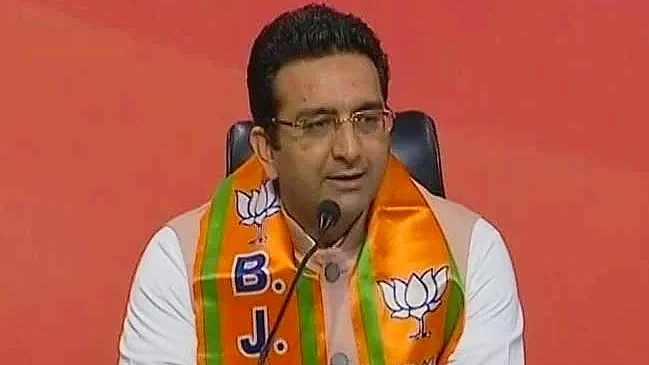In politics, need to be thick skinned: Delhi HC to BJP's Gaurav Bhatia
Bhatia stormed headlines earlier this month for appearing on live TV in what the internet swore was a kurta with…nothing underneath

Indian politics is no stranger to wardrobe malfunctions — metaphorical ones involving policy usually, and occasionally literal ones involving pyjamas. This week, the Delhi High Court was treated to the curious case of BJP leader and senior advocate Gaurav Bhatia, who stormed headlines earlier this month not for a fiery debate or legal argument, but for allegedly appearing on live television in what the internet swore was a kurta paired with… nothing underneath.
The episode began when a clip of Bhatia appeared online showing him in a kurta but seemingly not much else. The counsel for Bhatia, presumably with the straightest face in all of New Delhi, explained to the court that he was in fact wearing shorts, and that the cameraman had “shown the bottom half of his body by mistake”.
For millions of internet users, however, the image was too potent to be erased by facts. Hashtags like #NoPyjamaParty erupted, and some even suggested this was the most transparent moment in Indian politics since the Right to Information Act.
Bhatia himself was not amused and (perhaps unwisely) took the matter all the way to court. He argued that “it was an invasion of my privacy. I was sitting in the privacy of my home. Such photos, first of all, may not be circulated without my consent.” The plea might have sounded stronger had he not, in fact, been sitting in front of a camera broadcasting live to the nation. As Justice Amit Bansal gently pointed out: “You have the interview; they did not barge into your home.”
Still, the counsel doubled down, insisting that the circulation of these images violated privacy and demanded that objectionable comments be scrubbed from social media. The judge responded cautiously: “We have to be very careful. The Supreme Court has said that you should not pass ex parte orders in such cases. We have to be very careful.” The emphasis suggested that while courts can rewrite law, they cannot rewrite the internet.
In an apparent concession to decency, the bench added: "When you're in politics, you have to be thick-skinned. We’ll have to cull out what’s satirical and what’s defamatory. So for now we need to distinguish between offensive and satirical comments.” That, in essence, was the judiciary telling the nation: jokes are fine, but please, no visual essays about a politician’s thighs.
The judge concluded by noting that “obscene comments have to be taken down.” Which is both comforting and terrifying: comforting because there are limits, terrifying because one must now wonder who gets to decide what counts as obscene — the courts, or the average X handle with a GIF collection.
The matter is now listed for 25 September. Until then, the question lingers: is this a case about privacy, satire, or the fragile dignity of trousers? Whatever the verdict, one thing is certain: the internet, unlike pyjamas, is never going back in the drawer.
With PTI inputs
Follow us on: Facebook, Twitter, Google News, Instagram
Join our official telegram channel (@nationalherald) and stay updated with the latest headlines
